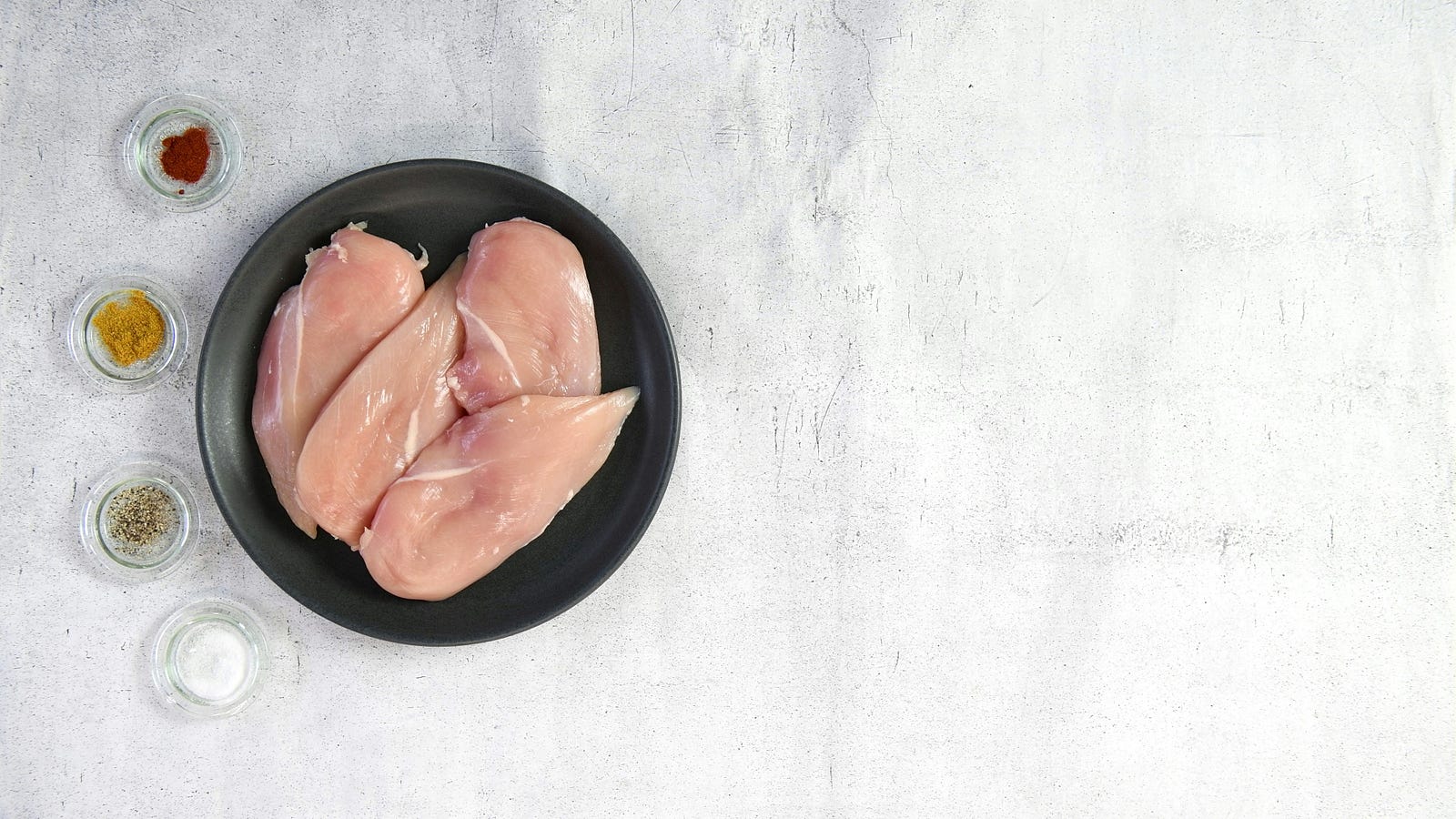PROTEIN IS A VITAL MACRONUTRIENT THAT is central to building, maintaining, and repairing our body’s tissues. Today’s topic? Protein exposed.
As I prepare for the Emerald Cup, the Master’s Over-60 Physique competition in Seattle, my journey has led me to ponder the importance of protein in our diets.
Correction.
I have been thinking about protein for a while.

As we reach middle age, we start having progressively increasing challenges converting the protein we consume into muscle.\
My Goals
In this article, we will explore the fundamentals of protein, learn how to select high-quality protein sources, and determine the ideal protein intake for a balanced diet.
This knowledge can empower you to make informed dietary choices, whether you’re a fitness enthusiast or simply looking to improve your health.

Today, I’ll explain why powders are valuable, the optimal protein type, and why you should supplement (not replace) your meals.
I have learned much of what I will share during my over-60 bodybuilding (physique) journey.
Protein Basics
Protein is essential in muscles, bones, skin, and hair.
The substance plays a diverse and crucial role in our bodies, from creating enzymes that drive numerous chemical reactions to producing hemoglobin that carries oxygen in our blood, enlightening us about its multifaceted functions.
With over 10,000 proteins, these molecules are crucial to shaping your physical structure and maintaining your health.
These proteins are composed of more than twenty basic units called amino acids.
Why You, Too, Should Think About Protein
Understanding the importance of protein for muscle maintenance and overall health can empower you to make informed dietary choices.
This is essential because, according to Marta Lonnie from the University of Aberdeen in the U.K., between the ages of 40 and 80, we can lose 30 to 50 percent of our muscle mass.
Eating enough protein can help lower the risk of falls that come with losing muscle.
Additionally, we use protein to make hormones, enzymes, and neurotransmitters, which are crucial for many of the body’s processes.
We Can’t Store Amino Acids
Our bodies cannot store amino acids but synthesize them from scratch or modify pre-existing ones.
Nine amino acids — histidine, isoleucine, leucine, lysine, methionine, phenylalanine, threonine, tryptophan, and valine — are classified as essential.

The body cannot make amino acids. We must obtain them through our diet.
How Much Protein Do You Need?
The National Academy of Medicine suggests this:
Adults should consume at least 0.8 grams of protein per kilogram daily, translating to just over 7 grams per 20 pounds.
This recommendation suggests that if you weigh 140 pounds, you should get about 50 grams of protein daily.
A 200-pound individual should aim for around 70 grams.
The National Academy of Medicine also explains a broad range of acceptable protein intake levels, carrying from 10 to 35 percent of your daily calories.
Real-World Outcomes
A Harvard study reported in 2016 tracked over 130,000 individuals for up to 32 years.
High consumption of animal protein was linked with an increased risk of death from cardiovascular causes.

On the other hand, those with a higher intake of plant protein had a reduced risk of death from all causes and cardiovascular issues, particularly among individuals with one or more lifestyle risk factors.
Replacing animal protein, particularly from processed red meats, with plant protein was correlated with a decreased mortality rate, suggesting the significance of the source of protein.
Keep in mind that this was not a randomized trial and carries all the potential problems of observational studies.
The researchers adjusted for potential confounding factors but could not completely rule out the influence of unmeasured factors.
Study Strengths – Protein Exposed
I highlight the Harvard study as it had many participants, frequent dietary updates, and a high participant retention rate over the 32-year duration.
The researchers also gathered extensive information on various lifestyle factors, which allowed for adjustments for other influences and detailed subgroup analyses.

They also analyzed protein intake based on its food sources and looked at what happens when you replace one type of protein with another.
Study Criticisms
However, there is a problem:
Participants tended to eat more protein (about 19% of their calories) than the average U.S. population, which typically consumes around 15% of calories from protein.
This finding makes it harder to understand the effects of very low protein intake.
In addition, the study found that eating more animal protein was linked to a higher risk of heart-related deaths.
Eating more plant protein was linked to a lower risk of death in general.
Researchers found these effects in people with at least one lifestyle risk factor.
More Recent Research
A 2023 analysis of over 800 healthy subjects in their 80s suggested the importance of adequate protein consumption:
Those with adequate protein intake had a lower risk of early death among independent and active individuals.
Most older patients consume about 60 to 70 grams of protein daily.
In the AARP Bulletin in April 2024, Donald Layman (Professor Emeritus at the University of Illinois at Urbana-Champaign) counters that we should aim for at least 90 grams daily.
So, How Much Protein Should You Get?
The National Academy of Medicine suggests that adults need at least 0.8 grams of protein for every kilogram of their body weight daily.
To break it down:
- A 140-pound person should eat about 50 grams of protein daily.
- A 200-pound person should aim for about 70 grams of protein each day.
It’s crucial to be aware that according to current National Academy of Medicine guidelines, almost half of older adults don’t eat enough protein, emphasizing the importance of adequate protein intake for this age group.
Does This Recommendation Apply to All?
No.
The recommended daily amount of protein is likely inadequate for our resistance (or even endurance) training.

Here is a helpful position statement from the International Society of Sports Nutrition:
“Exercising individuals ingest protein ranging from 1.4 to 2 g/kg/day. Individuals engaging in endurance exercise should ingest levels at the lower end of this range, individuals engaging in intermittent activities should ingest levels in the middle of this range, and those engaging in strength/power exercise should ingest levels at the upper end of this range.”
I weigh about 150 pounds most of the year, cutting to 143 to optimize my abs.
For me, this translates to a modest 54 grams of protein daily.
This amount can be obtained by combining 3 ounces of chicken breast, a half-cup of white beans, and 5.5 ounces of Greek yogurt.
Does Age Matter?
Yes, age matters when it comes to protein intake.
I do more than I just suggested because I am 61 (and train for bodybuilding physique competitions).
Here are some other reasons you might want to bump up your protein:
- As we age, our bodies do not process protein as efficiently as when we were younger.
- Older adults are more likely to have chronic systemic inflammation (from infections or other health issues), which raises the body’s protein requirements.
- If you are recovering from surgery, are on steroids, or are going through head and neck radiation therapy, you might want to bum up that protein quantity.
It is vital that we older adults ensure we are consuming enough protein to maintain our muscle mass and overall strength.
Safety of Exceeding Protein Recommendations
I was surprised at how little high-level evidence exists that “too much” protein can wreck your kidneys.
I first heard that my modestly elevated protein might cause kidney injury as we chatted in the gym with a leading spine surgeon.
Most of the evidence cited by some is from animal models and patients with kidney disease.
A carefully planned study followed a group of women over time and found that eating a lot of protein did not harm kidney function in those with healthy kidneys.

What About Protein and Bone
Some worry that eating a lot of protein could cause your body to lose more calcium, leading to weaker bones or osteoporosis.
However, I could not find strong evidence to support this claim.
I found that studies that tended to find harmful effects of high protein intake had flaws, including small sample sizes, study design errors, and the use of extraordinarily large pure protein volumes.
I believe that the phosphate in foods chock full of protein (or in supplements with added phosphorus and calcium) cancels out these potential bad effects.
Some evidence indicates that older adults — who are more vulnerable to osteoporosis — may need to consume more protein than what’s currently recommended to help keep their bones strong.
Getting That Protein
Be careful of breakfast cereals carrying the high-protein label. Some are chock full of sugar and low in fiber.

- If you are looking for high protein sources, select items with at least 10 grams of protein per serving.
- Good protein sources should have 5 to 9.5 grams per serving.
- Protein-based drinks and powders greatly vary. Beware of those with additives such as sugar and artificial flavors. If you want to use protein supplements, I want you to look for quality ones; bad ones may be contaminated with heavy metals (such as lead or arsenic).
I find incorporating protein powders (with water if I am in a cutting phase or milk if I am not) invaluable.
Still, we should get most of our protein through whole foods.
Protein Sources
Consumer Reports provides a list of foods that can help you up your protein intake:
- Beef, grilled, 3 ounces: 24 grams
- Chicken breast, cooked, 3 ounces: 24 grams
- Salmon, cooked, 3 ounces: 23 grams
- Tuna, 3.5 ounces: 19 grams
- Tempeh, ½ cup: 17 grams
- Greek yogurt, plain, nonfat, 5.5 ounces: 16 grams
- Tofu, ½ cup: 10 grams
- Beans, canned, white, ½ cup: 9.5 grams
- Edamame, shelled, ½ cup: 9 grams
- Hemp seeds, 3 Tbsp.: 9 grams
- Lentils, cooked, ½ cup: 9 grams
- Quinoa, cooked, 1 cup: 8 grams
- Whole-wheat pasta, cooked, 1 cup: 8 grams
- Almonds, raw, 1 ounce: 6 grams
- Buckwheat, cooked, 1 cup: 6 grams
- Egg, one: 6 grams
My Final Thoughts – Protein Exposed
Inadequate protein can lead to your body breaking down muscle tissue to meet its needs, resulting in muscle loss and diminished strength.
Remember: We lose 30 to 50 percent of our muscle mass between ages 40 and 80.

Fortunately, for healthy people who exercise, eating protein in the recommended amounts doesn’t pose any health risks.
After researching for this piece, I am more likely to pursue plant-based protein sources.
What’s your approach to protein? Are you getting adequate amounts?
Get an email whenever Dr. Michael Hunter publishes.
drmichaelhunter.medium.com.
Thank you for reading “Protein Exposed.”




